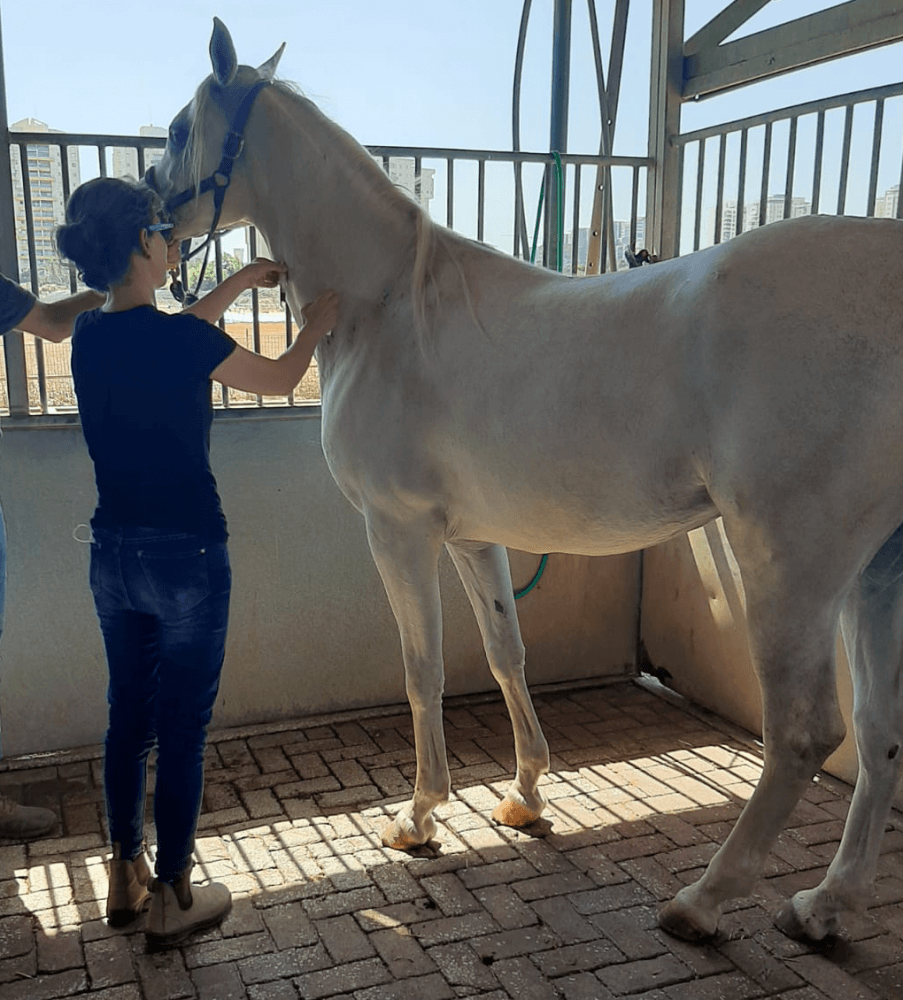The equine corona virus is a close relative of the corona virus which has caused widespread morbidity in the world in the last year (COVID-19). In this family, called beta-coronavirus, there are also other animal and human corona viruses, among them the bovine corona, which is also found in cattle in Israel

Diagnosis of corona in Israel - this time not in humans. A group of researchers from the Court School of Veterinary Medicine In collaboration with researchers from the Department of Virology at the Kimron Veterinary Institute and researchers from the School of Veterinary Medicine in Davis (USA) were able to find for the first time evidence of the presence of the corona virus in horses in Israel.ECoV) which, with the exception of a single report from Saudi Arabia, is the only one from the Middle East. The research work was carried out as part of the doctoral thesis of Dr. Gili Shurtz, and was recently published in the scientific journal Animals.
The equine corona virus is a close relative of the corona virus which has caused widespread morbidity in the world in the last year (COVID-19). In this family, called beta-coronavirus, there are also other animal and human corona viruses, among them the bovine corona, which is also found in cattle in Israel. For many years, the corona virus in horses was considered a cause of morbidity of the digestive system in foals. In the last decade, outbreaks of gastrointestinal disease with this corona have also been reported in adult horses in North America, Europe and Japan. The main signs of illness are lack of appetite, weakness and fever. There may also be complications that will cause more severe signs of illness, but death from the virus is considered rare.
As part of the study, samples were collected from 333 healthy horses in 29 horse farms scattered throughout Israel. The blood samples were sent to the laboratory at the School of Veterinary Medicine in Davis in order to test for the presence of antibodies to equine corona using a laboratory method developed by them. The horse population in this study consisted of apparently healthy horses with no recent disease reported. Antibodies against equine corona were found in 41 of the horses (12.3%). Also, the presence of horses with antibodies was found in 17/29 farms at a rate of 12.5-37.5%. Moreover, the rate of exposure to the virus was significantly higher in horses staying in central Israel, and significantly lower in horses that lived in pastures and not in closed places. "It is possible that the route of urofacal transmission is limited in horses on pasture, due to lower density, open air and natural ventilation. As described in the study, increased density (i.e., small areas compared to grazing) may increase the orophecal transfer of theECoV", explained in the scientific article.
The rate of detection of antibodies against equine corona in healthy horses in Israel is similar to that found in healthy horses in the USA (9.6%). "The importance of the work is that for the first time exposure of horses to this virus was demonstrated in our region, so it is important to include it in the list of possible causes of gastrointestinal disease in adult horses. At the same time, it is important to note that we have not yet found molecular evidence of the presence of the virus, and we are currently in a study whose purpose is to identify the virus in fecal samples of horses and foals suffering from gastrointestinal disease," explains Dr. Amir Steinman, director of the Veterinary Medicine Hospital at the Hebrew University. and an Israeli specialist in equine medicine, who led the research.
More of the topic in Hayadan:
